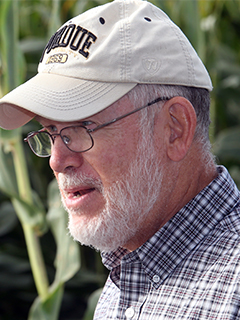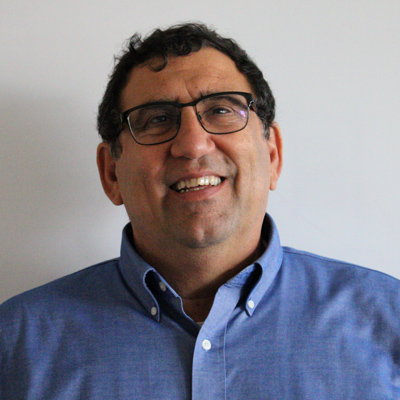Presentations
T9
Nutrient Management
Tue, Dec 14, 2021
9:00am to 9:50am
T2
Nutrient Management
Tue, Dec 14, 2021
2:00pm to 2:50pm
What We Know and What We Don't Know About Corn Response to Sulfur in Indiana
As atmospheric deposition of sulfur has decreased over recent decades due to reduced emissions from power plants, the frequency of documented sulfur deficiency in corn has increased in Indiana. We began investigating the response of corn to sulfur fertilization at multiple locations around the state in 2017. Corn yield response to sulfur in field scale trials to date (2017-2020) have been inconsistent and unpredictable, with significant yield responses occurring in 10 of 28 trials. In those responsive trials, the average yield response to sulfur was about 13 bushels per acre (bpa) and ranged from 4 to 24 bpa over the 10 responsive trials. Spatial yield response to sulfur was evident in 4 of the responsive trials. In those trials, yield response to sulfur varied throughout each field from 1) 5 to 41 bpa, 2) 11 to 17 bpa, 3) 10 to 40 bpa, and 4) 0 to 12 bpa, respectively. By the time the CCA Conference takes place in mid-December, we will be able to share the results from 12 additional field scale trials conducted in 2021. While corn responds nicely to sulfur fertilization in some fields, it is clear that not every cornfield in Indiana requires the application of sulfur fertilizer. The challenge lies in identifying or predicting which fields are consistently responsive to sulfur fertilization. To date, we have not identified field, soil, or weather characteristics that correlate strongly to corn yield response to sulfur.
Speakers

Bob Nielsen
Bob was raised on a small farm in eastern Nebraska, obtained a B.S. degree at the Univ. of Nebraska and graduate degrees at the Univ. of Minnesota. He joined the Agronomy faculty at Purdue University in Indiana in 1982 with statewide responsibilities for applied field research, graduate student training, and Extension programming emphasizing corn production. In recent years, Bob’s field-scale research has focused on determining optimum seeding rates for corn, evaluating the merits of biological inputs for corn, identifying the optimal use of sulfur and starter fertilizer for corn, and the evaluation of small UAVs for crop scouting and field research. Bob’s Extension programming focuses on optimizing yield, profitability, and stewardship of corn production for growers in Indiana and throughout the eastern Corn Belt. Bob began a voluntary partial retirement program in January 2020 with target timeline of retiring fully sometime before the end of 2022.


